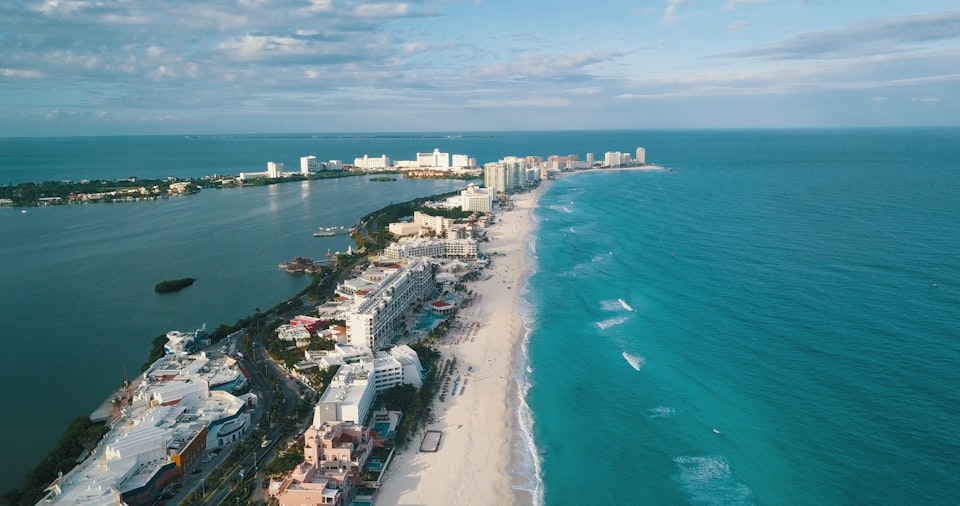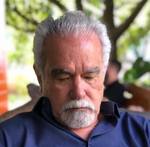Let's place our bets: how long will it take for the "Cancun Model" to return to the agenda as an inspiration for the development of Brazilian tourism in this election year?
Before we start there, it is worth pondering because Cancun is not a reference for the future of tourism in Brazil.
Cancun has attracted tourists, generated wealth and aroused controversy for more than 45 years. An icon of the seaside resort model built from scratch, the result of strong government intervention and high investments, the Mexican example returns to the national debate every now and then as a reference for the development of tourism in Brazil. Several reasons, however, explain why this model no longer fits in tourism development references, especially when, more than ever, public (and private) planning needs to look to the future.
The result of Mexico's first National Tourism Plan (1963), Cancun was the result of the developmental model of the last century, of great state intervention and when themes such as the environment, cultural identity and technologies were secondary. Its geographical location (proximity to the U.S., white sand beaches and Caribbean Sea), the historical moment (U.S. embargo on Cuba) and large investments in infrastructure and international promotion were fundamental for the immediate attraction of significant numbers of foreign tourists, especially North Americans.
The most visited place in Mexico, Cancun received 16 million foreigners in 2019, concentrating almost three times the number of visitors registered by the whole of Brazil in the same year. The resort is a successful case in economic terms, however, it cannot be ignored that, in it, complex problems have emerged: inequality, violence, organized crime, garbage, environmental degradation and excessive dependence on a single economic sector.
Before the pandemic, Cancun was already an anachronistic model. Now, this perspective is consolidated and worsened, given the changes that have occurred in the world since we were faced with COVID-19.
According to Vicente Acosta, CEO of the Mexican consultancy Sustentur, " The model is outdated. At a time of strong consolidation of the 2030 Agenda, returning to the model of the 1960s - 1970s is a step backwards ”. For Sandra Weber, director of a tourist resort in Mexico, " new locations around Cancun are developing because they value authenticity and creative tourism products ", which is in line with the new Mexican guideline for tourism. There are clear signs of exhaustion of the model based on the construction of mega hotels, isolated from the local context, to which there are already numerous alternatives and which are gaining preferences from the current consumer.
As evidence to understand consumption, we have the Sustainable Travel Report by Booking 2022, which presents a survey carried out with about 30 thousand people around the world and addresses travel habits and sustainability. The most recent findings strengthen what already appeared in 2021: there are indications in the market that travelers want and intend to insert more sustainable practices into their vacation choices. The understanding is that tourism needs to positively impact the destinations visited and their populations. Concerns about garbage, wildlife conservation, CO2 emissions, and the authenticity of experiences are at stake. Destinations such as less agglomeration of people and less known are also on the rise.
Replicating the Cancun model is a mistake that has already been made in Brazil, and that we do not need to keep repeating. “ Costa do Sauípe was inspired by Cancun and did not work for several reasons. The new generations of travelers want experiences, contact with local culture and authenticity " says Carolina Sass de Haro, a consultant who contributes to the redesign of resorts in Bahia. " The new strategy yielded a profit of R$ 10 million in the first year of the reformulated operation" , she adds.
Global futures research centers, such as the Copenhagen Institute for Futures Studies, strongly indicate that topics such as climate change and sustainability, technological development and diversity can no longer be left behind as fundamental themes for consumers. Its director, Carsten Beck, believes that "It is necessary to be open to discussing the future you want in your country. There must be reflection not only guided by optimism, but realistic, with real scenarios and perspectives " (see interview here ). Therefore, if we want to attract visitors today, while also preparing for the future, we need to adapt our territories and planning methods. Looking ahead is a premise.
Brazil can be inspired by places like Costa Rica, South Africa and New Zealand, which address topics such as innovation in tourism linked to sustainability. They modernized infrastructure and services, qualified professionals and invested in international positioning, which is more interesting than manufacturing bathhouses from scratch, as done in the last century.
We are the second most competitive country in the world in terms of natural resources, according to the World Economic Forum (2019). Research by the Ministry of Tourism indicates that culture and diversity are Brazilian differentials. We could transform these potentials into value-added services and we would have, here, tourist destinations connected with the present and the future. Instead of a "new Cancun", we could deliver authentic Brazilian experiences, and ensure that they remain aligned with the future, in processes of constant renewal, as the 21st Century demands.
It would be a good start, in this Century, to learn from past mistakes and act in line with what we already know: it is necessary to renew, always, looking forward.




